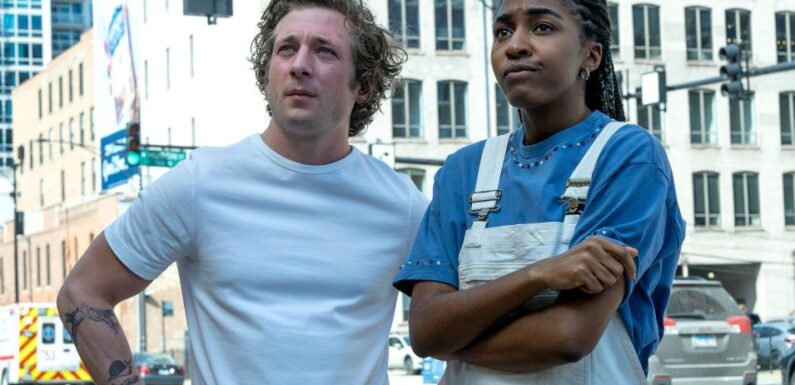
What makes us laugh is subjective, but what doesn’t can stand out like a sore thumb.
It’s the dilemma facing the Emmys’ comedy series category, which, as of late, has seen the dominance of shows that are increasingly less “haha, that’s hilarious” and more “hold on, that’s incredibly dark.”
This year’s eight nominees occupy an enormously diverse spectrum — “Abbott Elementary” (ABC), “Barry” (HBO), “The Bear” (FX), “Jury Duty” (Amazon Freevee), “The Marvelous Mrs. Maisel” (Prime Video), “Only Murders in the Building” (Hulu), “Ted Lasso” (Apple TV+) and “Wednesday” (Netflix) — and represent everything from tradtional workplace sitcoms to shows playing on the fringe of funny.
“Abbott Elementary” and “Only Murders in the Building” are perfect standard-bearers for great comedies. “Jury Duty” is a miraculous nominee given that it’s almost entirely improvised with a non-actor at its heart.
Move further out from those traditional joke-after-joke series and the definition of funny starts to blur. There’s no doubt “The Marvelous Mrs. Maisel” has stand-up comedy in its DNA, but its audience knows the show never shied away from depicting the dark side of giving everything to one’s craft. “Wednesday,” while based on a funny sitcom, dabbles in more surrealist, deadpan humor than laugh-out-loud punchlines.
Then there’s the increasingly cloudy comedy of “Ted Lasso’s” existential crisis across the pond and the Grim Reaper hitman that haunts “Barry” — with an emphasis on the grim. Both series have extremely funny casts led by two “Saturday Night Live” alums, Jason Sudeikis and Bill Hader, respectively. But neither makes great pains to hide that they sometimes find more pleasure in understanding the pain behind a laugh than eliciting one.

And finally, “The Bear,” which may finally break the system around the category. The acclaimed series has its moments of humor, but the majority of it runs about as hot and tense as the Original Beef of Chicagoland’s kitchen during the lunch rush. And that’s the key word: majority.
The 2022-2023 Emmys rules identify a comedy series as a program “where the majority of the running time of at least six episodes are primarily comedic.”
Under those requirements, would anyone who watched the first season of “The Bear” honestly say the majority of its eight episodes were comedic? Even if six were laugh riots, the mere existence of episode seven, “Review” — perhaps one of the most dramatic raw nerves that television has ever produced — takes the wind out of what precedes it.
Herein lies the issue: how does something like “The Bear” or “Barry” fairly compete against “Abbott Elementary”? Comedy comes in many forms, and we are lucky to see so many get due recognition in recent years. But at a certain point, there’s a divergence in intention.
Part of the confusion is that the Emmys aren’t eager to part with the antiquated notion that if a series is closer to half an hour, it must be a comedy. As television changes, so too does the time it takes to tell a complete story. For example, “Review” barely clocks in at 20 minutes, but even it could give “Succession” a lesson or two on sustained drama.
Not all of this falls on the Television Academy and its voting bodies. The networks and studios producing these series also determine where they submit the work, and sometimes the odds of winning outweigh obvious category placement.
But at the end of the day, whether audiences recognize it or not, they take cues from how Hollywood classifies and rewards series. There have been plenty of jokes made at the expense of “The Bear’s” white-knuckled tension being classified as comedy. But when that’s the funny thing being cooked up, it might be time to take another look at the recipe.
Read More About:
Source: Read Full Article